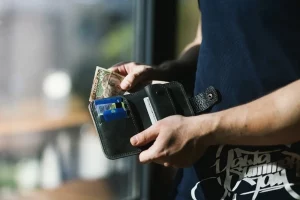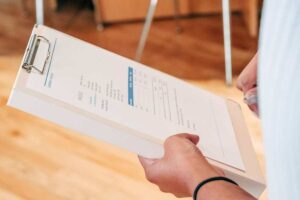
Many people can reach bankruptcy and a financial situation when debts become unpayable. Unforeseen circumstances such as a medical crisis can deplete savings and also cause someone to simultaneously lose their job. Unsecured credit card debt in particular can reach astounding numbers in a short period of time if income is routinely insufficient for a person’s expenses.
If someone becomes unemployed or has a single job that doesn’t pay enough, it can be hard to cover home and car payments or childcare expenses. If the debt amount keeps growing and there are virtually no means to pay it, the only sensible solution to start to regain control is to declare bankruptcy and seek financial and debt counseling. Here are a few tips to recover from bankruptcy and prevent yourself from reaching point zero again.
Post-Filing For Bankruptcy
Once you have filed for insolvency, you need to start to find your way back to financial stability which is easier said than done. Your financial trustee (court-appointed in many cases) will hold a creditor’s meeting or inform your creditors by mail or phone call that you have filed for bankruptcy. This means your creditors will no longer be able to harass you for payments. You can use this peace of mind to craft a long-term financial recovery plan. Certain assets that belong to you will be liquated to cover a portion of your debt and the rest will be discharged in the eyes of the law.
You will be allowed to retain certain personal belongings, your home, and your car (as long as you have been keeping up with their monthly payments in the 6 months before filing for insolvency). After you have filed for bankruptcy, it will be extremely difficult to secure loans from any financial institution since you will be perceived as risky. Your credit score will take a hit and the bankruptcy will appear on your credit report for at least 7 to 10 years. You must keep all these factors in mind when formulating a plan to recover from bankruptcy in Montreal.
Find Employment And Maintain A Residence
As soon as you have filed for bankruptcy, you need to be on the hunt for a job. Consider getting a second or third job to supplement your income if you are already employed. Look up alternative opportunities such as freelance contracting to increase your income. Making use of free material and courses online is also a great idea to diversify your skillset so you can apply to more varied jobs.
If you currently do not have a place of residence, work on securing that next. It may take you a few months to build up enough money or you may be able to secure it through selling one of your exempt assets. Having steady employment and a proper address increases your chances of repairing the damage to your credit score. Slowly and steadily you will be able to build it up in the next couple of years to make yourself eligible for loans.
Monthly Payments
You may have declared bankruptcy but you still need to pay new amounts due such as rent, utilities, and other expenses. Bankruptcy only deals with discharging your previous debts (and in some cases not entirely). If you stop paying mortgage payments or payments due on your car, you will lose the latter and have a foreclosure of the former. Being able to meet monthly payments by downsizing your lifestyle considerably is imperative to improving your credit score and maintaining your post-bankruptcy recovery.
Avoid Accumulating New Debt
After bankruptcy cease the use of credit cards as far as possible as you need to control how much new debt you are accumulating. Keep all expenses strictly on a cash basis and avoid using the automatic payment feature for subscriptions or utility bill payments as it is important to be mindful of how your money is being used. Focus on rebuilding a reliable and sustainable cash flow through opening a savings account. A positive bank balance maintained over 6 months can restore the bank’s faith in you and allow you to open more accounts in the future.
Work On Your Mortgage And Car Payments
For most people mortgage payments and car payments form the bulk of major expenses while other expenditures can usually be lessened. Consider getting help from friends or family if you want to make a large purchase (such as getting them to cosign the financing). Generally, you may have trouble securing insurance on any valuable asset and if you are able to secure a loan, it may be on unfavorable terms such as a very high interest rate.
Negotiate with your mortgage lender to rework the original terms in light of your recent bankruptcy filing so you are able to keep your home. You can also sell your car or other valuable assets or move to a smaller home or apartment in an effort to lower your expenses overall which will allow you to save.
Study Your Credit Report Monthly
You may have looked at your credit report before or after filing for insolvency but it is best to make a habit of it. Check your credit report monthly (you can request it for free in most cases initially but afterwards a small fee is charged) so you can keep track of how regular your payments are and how responsibly your income is being utilized. This can be part of an effort to change certain behaviors such as procrastination in paying bills for example that may have had a part to play in your bankruptcy.
Secured Credit Cards Are Better
If you must have a credit card post-bankruptcy apply for a secured credit card (cards that are secured by amounts or other forms of collateral you have put up beforehand). This will help you not accrue vast new debts when paying for your daily or monthly bills and expenses. It is also a way of controlling how much you spend as the card is secured and limited so you are not tempted to spend more than what you possess currently as you would with a regular credit card.




















